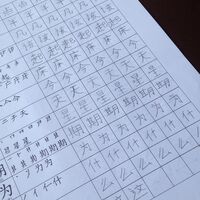There is a cooperation agreement between the faculty 07 of our university and Donghua University, which waives the tuition fees for incoming students. Only a language certificate, a passport photo for the student ID and an application (with a copy of the passport) must be sent, online to Shanghai, to the coordinator.
Shanghai as a world metropolis is one of the most fascinating world metropolises in the world. Located in the east of Asia, the city is centered on the Chinese mainland on the north-south coast on the Yangtze River Delta. The beginnings of Donghua University, also called North-South University, can be traced back to 1912. Founded by Zhang Jian, this "Nantong College" was a famous institution of the Qing Dynasty in its time. In 1951, in addition to the institute for various teaching fields, the institute was renamed "China Textile University", as this department is still the most important of the university. In 1985, the university was renamed again and still bears the surname "Donghua University" (North-South University).
The campus of Donghua University, is huge compared to that of our university. In addition to the various classroom buildings, there are different dormitories on campus. The international students are accommodated in 3 buildings that exclusively house them.
accommodate them. Two of these buildings are equipped with double rooms and with a rent of just under 200 euros per month, it is a really affordable option in Shanghai. Reservations can only be made in advance through the coordinator. If you do not want to share your room, it is possible to book a "private apartment", which is much more expensive (about 750 euros per month) through a private website. Besides the possibility to cook for yourself, there are two canteens on campus that offer a variety of Asian dishes. Around the campus there are also many small restaurants where Asian dishes are also offered at reasonable prices.
The International Cultural Exchange School (ICES), sponsored and offered by DHU (Donghua University), is the faculty within Donghua University where the semester abroad takes place. This program for international students includes various programs that can be chosen according to interest. For The Hochschule Niederrhein and especially our faculty 07 with the textile background, two programs are offered:
- 1) Regular Track (15 weeks) - March 7 to June 16.
- 2) Language Track (18 weeks) - 28 February to 4 July
Both courses include Chinese language instruction as a required course. The 18-week program is based on the "major language track" which meets every morning of the week from 8:10 to 12:10 and is designed primarily to teach Chinese language. For this course there are already 20 credits and it is recommended by the coordinator in Shanghai to choose only one or two extra courses in addition, otherwise the exercises and homework would exceed the framework. The second one, the "Regular Track", is the one with 15 weeks of classes, the shorter of the two and includes as a fixed component a language course that takes place twice a week. There are 8 credits for this course. In order to be able to achieve the required 20 credit points, one can select from a course catalog beforehand which courses are appealing. Finally, during registration, you will receive a timetable with all courses from which you can put together your personal schedule. Unfortunately, of the six design-specific courses listed, only two were offered in the summer semester 2017, one of which only takes place in the late evening. This fact is a great, great pity, especially for design engineering students. Besides a few textile-specific courses such as "Nonwoven Technology", mainly business administration or management-specific courses are offered. For example, "International Trade", "International Marketing" or "Global Logistics". From these, an appealing combination must now be selected, with which one comes to the 20 credit points to fulfill the semester abroad.
Because many of the students live on campus, you quickly get to know each other. Also through the different courses that you have during the week, new friendships are formed. The Chinese students are very helpful when you have questions or concerns. Especially helpful is the coordinator Ms. Frances, who is the contact person for the exchange students. No matter if you want to order something online or just drop by for a chat, you will always be warmly welcomed. Besides the office hours in her office, it is possible to get in contact with her on weekends or after official hours by exchanging private contact information.
Already in Germany, one becomes aware that a trip to China mainly involves a censored Internet. The only possibility that remains to use Internet services such as Google, Google Maps, Facebook, GMX, YouTube, etc. is a paid VPN access, with a higher performance. After acquiring this VPN access, it is finally possible to make Skype or Facetime calls back home.
The general lecture structures at Donghua University are comparable to those at the Hochschule Niederrhein. However, each course consists of considerably fewer students than at the university at home. In Shanghai, for example, a course consists of a maximum of 15 students and is therefore very intensive, because the university teacher / lecturer has a much closer relationship with each individual student. There is also a significant and enormous difference in the organization of the lessons, because in comparison, the lessons in Shanghai are much more intensive, which is due to the size of the groups, but also to the organization of the lectures. Students learn at Donghua University like in school, they are involved in the lessons and the participation in class is an essential part of the overall grade. Homework, essays or presentations must be prepared for each subsequent class session and are collected, corrected and graded by the university teacher / lecturer. Oral participation is also graded, especially in the Chinese language course. The Chinese language classes are very demanding and very intensive, as the teachers really try to teach you the language. The course takes place two days a week and is taught by two teachers. In the morning, the new topic is taught, especially characters and new vowels. These are then actively repeated by a second teacher in the afternoon class. The enormous pace and mass of material taught requires very intensive follow-up and just working on homework is far from sufficient. Even though the Chinese course is the beginner course, the students should be able to master 300-350 characters by the end of the semester. Learning this language is complex because not only vocabulary, such as in English, must be memorized, but also a completely new spelling and stress. During the semester, the simplified Chinese spelling, 'pinyin', is abandoned and only written in characters. This requires that you really master each character, know how the way of speaking sounds and know the meaning.
Besides the very intensive and work-intensive Chinese course, the other lectures follow similar structures, certainly no language is taught there, but preparation and follow-up time for each subject is compulsory. The mostly Chinese university teachers / lecturers are really very nice and eager to answer every question. Even if the level of English varies greatly, you can contact the university teacher / lecturer at any time and even write on "WeChat" (similar to "WhatsApp") and receive answers even at night. Especially the communication through the messaging service "WeChat", which is significantly integrated into the lecture, is really very advanced. Whether homework, language exercises or information, everything is handled through this service. In terms of content, each subject is designed very interesting, even if all subjects are not entirely in the personal area of interest, you learn many new things that can be useful in the future. Particularly impressive are the case studies that are worked through, for example in "Management Information System" or in "Business Practice in China: Intercultural Business Communication", which are discussed and debated in class.
As usual after each semester, the semester in China also ends with examinations. Unlike at home, attendance, homework and participation in class play a very important role in each subject. This system is very reminiscent of school days. Almost every subject evaluates this participation in class with 50% of the total grade. Interim presentations, papers, or essays also count toward the grade in addition to the final exam. Thus, the final examination at the end of the semester is an additional important element of the final grade, accounting for 25-30 percent. Near the end of the semester, examinations and final presentations crowd in, with the final Chinese examination proving to be the most work-intensive of all subjects.
Having spent the semester abroad at Donghua University in Shanghai was an enriching experience that I wouldn't want to miss. Even though many of the originally planned design subjects were canceled, I was able to learn many new things. Biting my way through some of the management subjects makes me proud in retrospect, especially since I even performed better in some subjects than students whose courses were based on a business or engineering background. The fact that our Chinese class also received "excellent status" also makes me very proud in retrospect, since it was precisely the learning of this so complex language that presented a great challenge for me. Beyond the courses, I was able to meet many new people, some of whom I can now call my friends. China as a country which seems so completely different from the usual, where the language and writing is not understandable, where the culture and mentality seems fascinating and exotic, can now be understood by me much better. Shanghai as a world metropolis is fascinating and I was allowed to call it my home for the months. A city that never sleeps, where there is always something going on, that flashes and shines, where you can enjoy many different delicacies, I will miss because of its enormous diversity. However, the hustle and bustle and the many people can also get to you, which is why, in retrospect, I wouldn't stay in the university dormitory again. Living together in a small space can be very exhausting in the long run if you can't switch off. I recommend that everyone look for a room in a shared apartment on the Internet beforehand. The semester in China was an important experience that I was able to make and would not want to miss.























